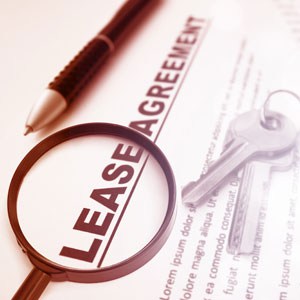
Disclaimer: I am not affiliated with the State Attorney's office. However, I've had the privilege of gaining extensive experience with commercial real estate leases, which allows me to offer valuable insights.
Drawing from my expertise, I can provide advice on key factors and warning signs to consider when negotiating a lease. This guidance is based on my own experiences as a business owner and my work with clients. I believe there's a strategic approach to dissecting these types of leases, identifying what's in the best interest of the client, and discerning what should be avoided.
The role of lease negotiation in a business’s success is so often overlooked., so my goal is to help people navigate lease negotiations by leveraging my knowledge and insights into what makes a lease favorable and of value for their unique business needs.
Several vital considerations can make or break a deal when entering negotiations for commercial properties. Here are some key factors to bear in mind:
When it comes to the lease itself, here are the things you’ll want to consider before you dive in:
A common and costly mistake in lease agreements is overlooking the landlord protection clauses. These provisions are nearly universal in standardized leases and are designed to shield landlords from external actions and liabilities. These clauses may encompass a wide range of issues, including:
Sidewalks and ADA compliance, in particular, are often significant areas of concern for many tenants. Landlord protection clauses can have far-reaching implications, so be aware of what's included.
When negotiating lease terms for various property types like retail spaces, office buildings, or industrial warehouses, several essential considerations come into play. The nature of your operation is a significant factor, with different property types requiring distinct assessments.
For instance, if you're running a food service establishment, you're dealing with specialized equipment such as electrical appliances and gas systems. In such cases, you'll often need more extensive plumbing infrastructure, including features like floor sinks. This also means a higher electrical load on your grid.
What’s more, evaluating the property to determine if it meets the requirements of your business model is vital. You need to ask questions like: What modifications are necessary to make the space compliant with your specific needs? Who will cover the cost of these modifications? Are they in accordance with local regulations? Additionally, you must verify if the property is zoned for the type of business you plan to operate. All of these factors must be thoroughly examined before signing a lease.
This brings to mind a client I once worked with who found an incredible space and even benefited from a city program that allowed them to subsidize their rent. However, after signing the lease, they encountered an unexpected roadblock: they needed to install a three-tiered sink for their food service, as required by the health department.
When they revisited their lease, they discovered they couldn't add the sink because they were not permitted to make that type of change to the property. This situation forced them to exit the lease despite the perfect location, site, and size of the space. Regrettably, they weren't correctly zoned. I helped them find another space, but I wish they had sought my services before committing to that lease. For more information on The Role Of Lease Negotiation In A Business, an initial consultation is your next best step.
Call Now To Book A Free 30 Minute Assessment Of Your Needs (424) 287-4779